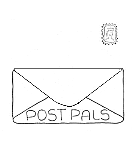Pianist | Beginning Piano Lessons On The Internet: Useful, But Careful
When you learn to play piano, but the opportunities available throughout the Internet. More specifically, many websites offer lessons Quick Step by step, and free online sheet music, pianists can use to learn to play the piano for free. Of course, like any free service, which should be approached with caution, and many need to be taken with a grain of salt. After all, they are free for a reason. Despite all that the Internet has to offer, most of the best ways to learn piano still involve paying money to a highly qualified professional instructor in a way.
You learn to play the piano with free lessons, or if you use a paid service, any learning process of quality starts with fundamentals. It 'one thing to show a few diagrams and to instruct the beginning pianist where to put your fingers, it is quite another thing to instill in the mind of the pianist a true understanding of structures, systems and theories every great piano player must have internalized.
So, to learn to play piano, free or through a paid service, make sure that the instructions for the effective use of musical terms, rather than degraded under proxy. This, for example, an instruction should not 't see the notes on the piano as numbers or your fingers, instead, education should use the real names of the notes - C, D, B flat, G sharp, and so on.
In other words, a beginning pianist wants to internalize the fundamentals of music as soon as possible. If you believe that your ability to play music is faster than your actual knowledge of piano and music, then something is wrong with your education. Both the skills and knowledge must go hand in hand.
On startup, the budding pianist can expect to be given a lot of repetitive tasks. We will play a large number of scales, arpeggios, and simple songs that are designed to help students master the complex methods of keyboard fingering piano. This is normal, and indeed, necessary. Any piano lesson program, which involves a large number of repetitive tasks is probably not the best way to learn to play the piano. free educational programs are often guilty of this.
This repetition is what leads many beginning pianists to give up very early, but the most persistent, things are improving. After a while, 'when you have mastered the techniques for fingering every pianist must master, the songs become more complex, then the repetition becomes a joy. For pianists who are a little 'later in the learning process, there is nothing better than opening a book to a seemingly incomprehensible notation and working on it until it becomes a long music.
For now, however, most of the songs played by beginners are relatively simple and straightforward, not involving a large number of sharps or flats, and not requiring the pianist to move her hands around a lot. In fact, many songs will be easier for the key - C major - and won 't deviate from standard hand positions.
Of course, all this will change when you get to know more complex chords, keys harder and more complicated melodic structures. Once the basics are learned, it won 't take long before these factors come into play fun.
In short, what I was driving, it's like to start learning the piano rarely offer immediate gratification. When you learn to play piano, free services tend to have unrealistic goals faster. In fact, learning the piano is a gradual process, which involves a lot of practice, lots of repetition, and a strong commitment by the pianist.
Duane Shinn is the author of the popular online newsletter on piano chords, available free at "Exciting Piano Chords & Chord Progressions!"
 Duane Shinn
Duane Shinn






0 comments:
Post a Comment